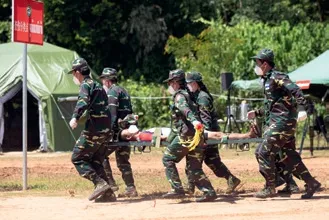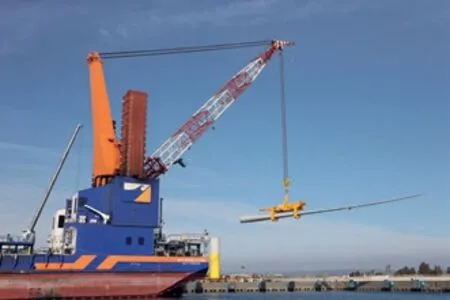Changes Unseen in a Century
By Josef Gregory Mahoney
Contemporary Chinese political discourse frequently mentions“changes unseen in a century,” so often in fact that it becomes a catchphrase in many high-level speeches. There are a number of ways to understand this phrase from a Chinese cultural, historical and Marxist perspective that might not otherwise be obvious to an international lay audience.
Historical crossroads
For some the phrase represents a historical turning point, one in which the historical experience known as China’s “century of humiliation” (1840-1949), when the country was vulnerable to, dominated by and even existentially threatened by foreign powers,has now been inverted with its reemergence as a secure sovereign nation and a growing global power. China today has the world’s second largest economy which is expected to eclipse or achieve parity, both economically and militarily, with the U.S.in the next 10 to 15 years. The changes alone are monumental.However, the deeper context here is the perceived decline of a unipolar international system and the possibility of a multipolar world, one where countries can work together for peace and development and on critical issues like climate change, in lieu of increasing competition and confrontation. Indeed, that was China’s past and it wants its rise to avoid a new dark cycle of such history making.

Lao military medical personnel participate in a China-Laos joint humanitarian rescue exercise in Phonhong, Laos, on July 25
The phrase is also associated with last year’s centennial of the founding of the Communist Party of China (CPC) and achieving the first centenary national development goal of establishing a—moderately prosperous—society as a threshold event signaling China eliminating extreme poverty and creating a population of more than 400 million middleincome earners who, along with the rest of China’s population—nearly 20 percent of the worlds’ total—enjoy unprecedented levels of sovereignty and security, and growing opportunities for realizing common prosperity via the rubric of socialism with Chinese characteristics.
The phrase also links to growing and often intersecting challenges that pose both new dangers and opportunities for China and the world. These include problems associated with climate change, the ongoing pandemic and certainly of more to come,growing international tensions and conflict amid geostrategic and economic realignment (e.g., the conflict in Ukraine, the U.S.-instigated trade war against China, increasing efforts to decouple, American meddling in China’s internal affairs, etc.), and the increasing breakdown of the so-called Pax Americana as more nations resist hegemony and push for true multilateralism, especially as more economic and political power redistributes toward the Global South and Asia particularly.
Of course, in some respects one is always within or entering a new era, and one must always historicize accordingly;but when that new era is distinguishable in terms of “changes unseen in a century,”then it’s necessary to acknowledge these changes and reposition accordingly, both at home and abroad. This is why the term is so frequently heard in Chinese, aimed at a domestic audience, but also communicated globally to an international audience.Consequently, its purpose is to serve as a frank, succinct expression of how the CPC understands this moment in time, one that signals the historical grounding for necessary, progressive reforms at home and abroad.

China-made turbines are assembled at a wind power project off the coast of Taranto,Italy, on January 27
In this sense, the phrase connotes a historical crossroads, one based on a holistic perspective of interrelated changes occurring in the natural environment, in the global political economy, and China’s own development and a need for new approaches in its domestic affairs. In this last context we can see the phrase appearing in reform decisions promoted by the various ministries—for example, one from the Ministry of Justice aimed at advancing the rule of law, another from the Ministry of Finance promoting new taxation policies, and another from the Ministry of Science and Technology supporting technological upgrading of mediumsized firms, each to accommodate new needs and opportunities in this period of “changes unseen in a century.”
Altogether, the phrase coincides with another term, “new era.” Both are expressions reflecting a historicist worldview. This kind of worldview is common to Marxists and especially Chinese Marxists. As the American Marxist Fredric Jameson famously admonished readers many years ago: “Always historicize!” What he meant by this is that we must constantly understand our history in tandem with our contemporary conditions, and how these help us understand what we want or need to do to reach the development goals we’ve set for ourselves. In other words, we must understand ourselves as moving through time,encountering changes and the possibility of progress and decline.
Shared future
As President Xi Jinping noted in a speech: “The world is undergoing profound changes unseen in a century, but time and situation are in our favor.”
Elsewhere he stated: “The momentum of the world either flourishes or declines; the state of the world either progresses or regresses.”
In short, he has made it clear that this is a historical crossroads for both China and the world, one he has answered by his push for a community with a shared future for humanity, including proposing win-win development schemes,advocating true multilateralism,and promoting cooperation to solve existential crises like climate change,pandemics, war and energy crises. We can see these in the various China-led efforts over the past decade, including the Belt and Road Initiative that aims to improve transcontinental connectivity and cooperation, the Global Development Initiative,the Global Security Initiative and the Asian Infrastructure Investment Bank, as well as its reinforced commitments to UN peacekeeping missions and aid to nations in need,among others.
Similarly, at a speech given at the General Debate of the UN General Assembly in September, State Councilor and Foreign Minister Wang Yi said, “The world has entered a new phase of turbulence and transformation. Changes unseen in a century are accelerating.”
Nevertheless, he also asserted, “We are also at a time full of hope. The world continues to move toward multipolarity;economic globalization is deepening, and our societies are becoming increasingly digitized and culturally diversified. Indeed, countries are becoming ever more interconnected and interdependent. Peace and development remain the underlying trend of our times.Around the world, the people’s call for progress and cooperation is getting louder than ever before.”
Further, Wang emphasized the necessity of upholding peace and opposing war and turbulence, pursuing development and eliminating poverty, remaining open and opposing exclusion, staying engaged in cooperation and opposing zero-sum competition, strengthening solidarity and opposing division, and upholding equity and opposing bullying. As he stated, these are the principles China is promoting given the historical crossroads we’ve collectively encountered in this new era, in this period of great changes unseen in a century. BR

